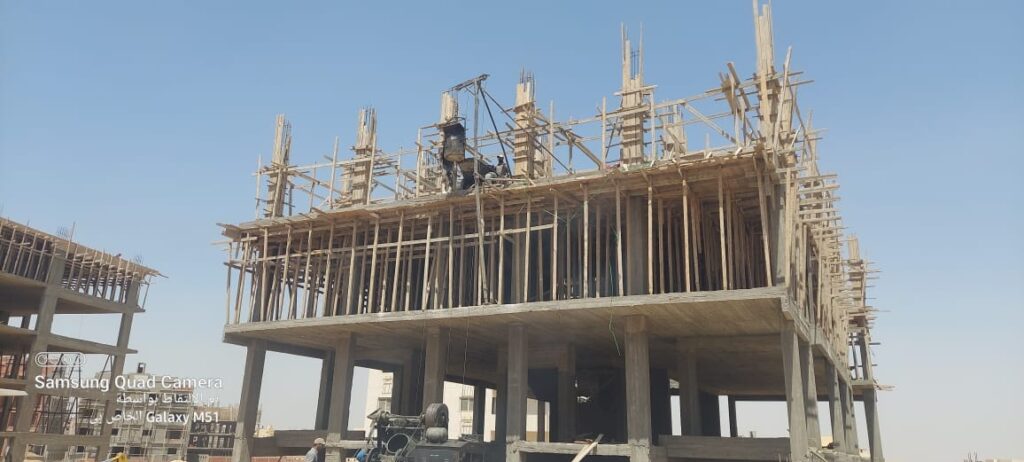Real estate development and investment are some of the most lucrative ventures in today’s economy. However, to maximize profits, it is essential to have a better understanding of the industry. The real estate industry constantly evolves, and investors must keep up with the latest trends to remain competitive. This article will explore ways to achieve better houses for real estate development and investment.
One of the most critical factors in real estate development and investment is location. The location of a property can significantly impact its value and potential for growth. Therefore, investors must conduct thorough research to identify areas with high potential for growth and development. This may involve analyzing market trends, population growth, and economic indicators to determine the viability of a particular location.
Another critical factor in real estate development is the quality of the property. Better houses are more likely to attract high-paying tenants and buyers, increasing investor profits. Therefore, investors must focus on building or acquiring properties that meet the highest standards of quality and design. This may involve working with experienced architects and contractors to ensure that the property meets all the necessary building codes and regulations.
Understanding Real Estate Development
Real estate development creates new buildings and structures from raw land or existing buildings. It involves various activities, including site selection, design, financing, construction, and project management. This section will explore key concepts in real estate development and the role of developers in the process.
Key Concepts in Real Estate Development
Real estate development involves several key concepts that are important to understand. These include:
- Site selection: Identifying and selecting a suitable location for a new development project.
- Design: Creating a plan for the new development, including the layout, size, and shape of the building or structure.
- Financing: The process of securing funding for the development project, which may involve loans, investors, or other sources of capital.
- Construction: The process of building the new structure, which may involve architects, contractors, and other professionals.
- Project management: The process of overseeing the development project from start to finish, including scheduling, budgeting, and quality control.
- Engineering: The process of designing and implementing the technical aspects of the development project, including utilities, electrical systems, and other infrastructure.
- Building materials: The materials used in the construction of the new structure, which may include wood, steel, concrete, and other materials.
Role of Developers in Real Estate
Developers play a critical role in real estate development. They are responsible for identifying and selecting suitable sites for development, securing financing for the project, and overseeing the construction process. Developers may work with architects, contractors, and other professionals to design and build the new structure.
Besides overseeing the development process, developers must also manage the risks and challenges of real estate development. This may include dealing with zoning and regulatory issues, managing construction delays and cost overruns, and navigating the complexities of the real estate market.
Overall, real estate development requires a combination of technical expertise, financial acumen, and project management skills. Developers must be able to navigate the complex and ever-changing landscape of the real estate market to create successful and profitable development projects.
Investing in Real Estate
Real estate investing involves purchasing, owning, managing, renting, or selling real estate for profit. Real estate investments can range from owning a single rental property to owning a large commercial property or investing in a real estate investment trust (REIT).
Types of Real Estate Investments
There are several types of real estate investments, including:
- Rental properties: Purchasing a property and renting it out to tenants for monthly income.
- Commercial properties: Owning a commercial property, such as an office building or retail space, and renting it out to businesses.
- Purchasing a REIT is like investing in a business that manages and holds a property portfolio that generates income.
- Syndications for real estate: Combining funds with other investors to buy a property and split the profits.
Benefits of Real Estate Investing
Real estate investing can provide several benefits, such as:
- Potential for high returns: Real estate investments can provide a higher return on investment than traditional investments like stocks and bonds.
- Tangible asset: Real estate is a tangible asset that can provide a sense of security and stability.
- Real estate investments can serve as a hedge against inflation and diversify an investor’s portfolio.
- Passive income: Rental properties can provide a steady stream of passive income.
- Benefits related to taxes: Investors in real estate can deduct costs such as mortgage interest, property taxes, and maintenance from their taxes.
Risks and Considerations in Real Estate Investing
Real estate investing also comes with significant risks and considerations, such as:
- Real estate can be difficult to sell quickly due to its illiquidity.
- Significant risk: Real estate investing can be risky, with the potential for unexpected expenses, vacancies, or market downturns.
- Syndication risks: Investing in a real estate syndication can include additional risks, such as conflicts of interest or a lack of control over the investment.
- Management responsibilities: Owning and managing rental properties requires time, effort, and expertise.
Overall, real estate investing can provide significant returns for investors willing to take on the risks and responsibilities of owning and managing real estate. Investors should consider their goals, risk tolerance, and investment strategy before investing in real estate.
Financing Real Estate Projects
Real estate development and investment require significant capital, and financing is crucial to any real estate project. This section will discuss the different funding sources for real estate development and investment.
Understanding Real Estate Financing
Real estate financing refers to acquiring funds for real estate projects. It involves obtaining capital to purchase, renovate, or develop properties. Real estate financing can take many forms, including debt and equity.
Debt financing involves borrowing money from a lender, such as a bank, to fund a real estate project. The borrower must pay back the loan with interest over a specified period. The interest rate on the loan is determined by the lender’s assessment of the borrower’s creditworthiness, the loan amount, and the loan term.
On the other hand, equity financing entails obtaining funds from investors in return for a stake in the real estate project. Equity financing is often used for larger projects that require significant capital and have the potential for high returns.
Sources of Funding for Real Estate Development
There are several sources of funding for real estate development, including:
- Traditional financing involves obtaining a loan from a bank or other financial institution. The property secures the loan and typically requires a down payment and mortgage interest payments.
- Crowdfunding: This involves raising capital from many investors through online platforms. Real estate crowdfunding platforms allow accredited investors to invest in real estate projects with low minimum investment amounts.
- Raising capital for private equity requires reaching out to institutional investors like insurance companies or pension funds. Private equity investors typically invest in larger real estate projects with high potential returns.
- Business plan: A well-prepared business plan can help attract investors and secure financing for a real estate project. The business plan should include a detailed project description, financial projections, and a market analysis.
- Leverage: Leverage refers to using borrowed funds to increase the potential return on investment. For instance, a real estate investor may utilize leverage to finance the majority of the purchase price of a property with a loan and make a small down payment.
Real estate financing requires careful planning and consideration of the different funding options available. Investors and developers of real estate can make educated choices and secure the necessary capital to fund their projects by understanding the different funding sources and their requirements.
Property Management Essentials
Role of a Property Manager
The daily management of a real estate property falls within the purview of a property manager. They serve as a point of contact for the landlord and tenants, making sure the latter are happy with their living arrangements and that the former is kept in good condition. In addition, the property manager is in charge of managing tenant complaints, collecting rent, and making sure the building conforms with all local rules and ordinances.
In addition to these duties, a property manager must also have a good understanding of the real estate market and be able to identify opportunities for growth and expansion. They have to keep abreast of market developments and possess the knowledge necessary to make wise choices about the property.
Maintenance and Operations of Real Estate Properties
Overseeing the upkeep and management of a real estate property is one of a property manager’s most significant responsibilities. This involves making certain that the property is kept up properly and that any repairs or maintenance needs are taken care of right away.
To do this, a property manager must understand the various systems and facilities within the property, such as HVAC, plumbing, and electrical. They must also be able to collaborate with vendors and contractors to guarantee that upkeep and repairs are completed effectively and affordably.
In addition to maintenance and repairs, a property manager must also manage the property’s operating expenses. This includes everything from utilities and insurance to taxes and legal fees. By keeping these expenses under control, the property manager can help maximize the property’s profitability.
Overall, property management is essential to real estate development and investment. By hiring a competent property management company or property manager, investors can ensure that their properties are well-maintained, their tenants are satisfied, and their investments are profitable.
Acquiring Investment Properties
Analyzing Property Values and Locations
Before investing in a property, it is essential to analyze the property values and locations. The value of a property is determined by various factors, including location, size, condition, and potential for rental income or resale value. The value of a property is significantly influenced by its location. Property values are typically higher in desirable neighborhoods with top-notch amenities, transportation, and educational opportunities than in less desirable ones.
Investors should also consider the potential for rental income or resale value when analyzing property values. Single-family homes and apartment buildings are examples of rental properties that can give investors a reliable source of income. Properties with high resale value can also be profitable if the investor decides to sell the property in the future.
Investors should perform due diligence when examining property values and locations to make sure they make an informed choice. Due diligence includes researching the property’s history, zoning laws, and potential for future development.
The Process of Acquiring Properties
The process of acquiring investment properties involves several steps. First, investors must identify properties that meet their investment criteria. This could mean browsing through online real estate listings, going to real estate auctions, or working with a real estate broker.
Investors must carry out due diligence after identifying a property to make sure it is a wise investment. Due diligence includes inspecting the property, researching its history, and reviewing financial records.
If the property passes due diligence, investors must secure financing to purchase the property. Financing options may include traditional mortgages, private loans, or cash purchases.
After securing financing, investors must negotiate the purchase price and complete the transaction. This may involve working with a real estate attorney or title company to meet all legal requirements.
To sum up, purchasing investment properties necessitates a thorough examination of the properties’ locations and values as well as due diligence to guarantee a sound investment. The process of acquiring properties involves several steps, including identifying properties, conducting due diligence, securing financing, and completing the transaction. Investors are able to purchase lucrative residential or commercial properties for their investment portfolio.
Generating Revenue from Real Estate
Real estate is one of the most popular and lucrative investment options. One of the key revenue streams from real estate is rental income. Another popular option is investing in Real Estate Investment Trusts (REITs).
Understanding Rental Income
Rental income is the revenue generated from renting a property. It is a popular strategy for creating passive income since the property owner can earn a steady income without having to actively manage the property every day. Rental income can be generated from various properties, including residential and commercial properties.
To maximize rental income, it is important to choose the right property. Factors such as location, condition, and amenities can all impact the rental income potential of a property. Additionally, setting the right rental price to attract tenants while still earning a profit is important.
Real Estate Investment Trusts (REITs)
Real Estate Investment Trusts (REITs) are another popular way to generate revenue from real estate. REITs are businesses that own and manage real estate holdings that produce revenue. Investors can purchase shares in mutual funds or publicly traded stocks.
REITs offer several advantages over traditional real estate investments. They give investors a means of making real estate investments without having to buy and maintain properties themselves. Furthermore, because REITs are required to distribute at least 90% of their taxable income as dividends to shareholders, they are preferred by investors seeking stable returns.
Investing in REITs does come with some risks, however. A REIt value is subject to change based on the state of the market, just like any other investment. Additionally, some REITs may be more heavily leveraged than others, increasing the risk for investors.
In conclusion, generating revenue from real estate can be accomplished through rental income or investing in REITs. Both options offer the potential for passive income and can be valuable to an investor’s portfolio.
Enhancing Property Value
Real estate investment is about enhancing the property’s value. There are several ways to increase the value of a property, including renovation and value-add strategies, as well as appreciation of real estate assets.
Renovation and Value-Add Strategies
Renovating a property is an effective way to increase its value. Renovations can range from smaller, more cosmetic changes like fresh paint and flooring to larger, more involved tasks like expanding the living area or modernizing the bathrooms and kitchen. It is important to carefully consider the cost of the renovation as well as the potential increase in property value.
Value-add strategies involve making strategic improvements to a property that will increase its value beyond the cost of the improvements. For example, adding a new bedroom or bathroom, updating the landscaping, or installing energy-efficient appliances can all increase the value of a property. It is important to carefully evaluate potential value-added strategies to ensure that the increase in property value will offset the cost of the improvements.
Appreciation of Real Estate Assets
Appreciation is another way to increase the value of a property. Appreciation refers to a property’s value increase over time due to market conditions. Although real estate markets can be unpredictable, historically, real estate has increased in value over time.
Flipping is a popular real estate investment strategy involving buying, renovating, and selling a property for a profit. Flipping can be risky, as it relies on accurately predicting market conditions and the cost of renovations. However, if done correctly, flipping can be a lucrative way to increase the value of a property in a short amount of time.
Overall, enhancing property value is a key aspect of real estate investment. strategies, renovation and value-add strategies, and appreciation of real estate assets are effective ways to increase the value of a property. It is important to carefully evaluate potential strategies and market conditions to ensure a successful investment.
| Strategies | Pros | Cons |
|---|---|---|
| Renovation | Can increase property value | Cost of renovation may not be offset by increase in value |
| Value-Add | Can increase property value beyond the cost of improvements | Must carefully evaluate potential strategies |
| Appreciation | Can increase property value over time | Real estate markets can be volatile |
| Flipping | Can be a lucrative way to increase property value in a short amount of time | Can be a risky strategy |
Legal and Tax Implications
Real estate development and investment can be profitable, but it is important to understand these ventures’ legal and tax implications. Here are some key considerations:
Navigating Real Estate Taxes
Real estate taxes can be complex, but it is important to understand them to maximize your returns and minimize your liabilities. One key consideration is capital gains tax, which is the tax on the profit you make from selling a property. Your income bracket and the length of time you have owned the property are two examples of variables that may affect the tax rate.
Another important consideration is closing costs, the fees for buying or selling a property. These include appraisal fees, title insurance, and attorney fees. When planning a real estate investment, it is important to factor these costs into your budget.
Insurance and Risk Management
Insurance is another important real estate development and investment consideration. Your investment can be shielded from theft, fire, and natural disasters with the help of property insurance. Liability insurance can also be important if someone is injured on your property.
Risk management is also important to minimize liabilities and protect investment. This can involve keeping the property safe from accidents, doing extensive due diligence before buying it, and having an emergency plan in place.
Overall, understanding the legal and tax implications of real estate development and investment is crucial for success in this field. By carefully navigating these issues, you can maximize your returns and minimize your risks.
Strategic Real Estate Investment Planning
Regarding real estate investment, having a solid plan is essential. Strategic planning can help investors build wealth, generate cash flow, and diversify their portfolios. Here are some key considerations for developing a strategic real estate investment plan.
Building a Real Estate Portfolio
Building a real estate portfolio involves selecting properties that align with an investor’s financial situation and investment goals. Several factors must be considered, including location, property type, and current market conditions.
Investors should also consider the potential for cash flow and long-term appreciation. Rental property investing can be an effective way to generate cash flow while also providing an inflation hedge and wealth-building opportunities.
Long-Term Investment Strategies
Long-term investment strategies involve holding properties for an extended period, typically five years or more. This approach can provide investors with a stable source of income and long-term appreciation.
Investors should also consider the potential for diversification within their portfolio. This can help mitigate risk and provide a hedge against market volatility.
Overall, strategic real estate investment planning can help investors achieve their financial goals. Investors can build wealth and generate cash flow over time by carefully selecting properties, considering long-term investment strategies, and diversifying their portfolios.
Market Trends and Future Outlook
Current Real Estate Market Analysis
The current real estate market is witnessing a gradual thaw after the COVID-19 pandemic. Real estate and land use are still impacted by some pandemic-accelerated trends, but other factors are becoming more significant. The variables that will impact the housing market in the upcoming years include an aging population, the growing costs associated with climate change, an increasingly unstable world, and the expansion of artificial intelligence into new economic sectors.
According to economists at the University of Michigan, Core CPI inflation is projected to be around 4.0% year over year in 2024 Q4, slowing down to 3.0% in 2025 Q2, 2.8% in 2025 Q4, and 2.5% in 2025 Q4. If their predictions hold, we will see an echo of historical inflation patterns and a more stable economic environment.
Redfin’s measurements indicate that there will be an estimated 4.3 million home sales in 2024, a 5% year-over-year increase. This indicates that the real estate market is poised for growth in the coming years.
Predicting Future Real Estate Market Movements
The future of the real estate market is always uncertain, but some trends can help predict future movements. One such trend is the increasing demand for sustainable and eco-friendly homes. As climate change becomes more of a concern, homebuyers are looking for energy-efficient, sustainable, and environmentally friendly homes. Developers and investors who prioritize sustainable development will be well-positioned to take advantage of this trend.
Another trend that is expected to shape the future of the real estate market is the increasing use of technology in the home buying process. Homebuyers can now view properties from the comfort of their homes thanks to the development of virtual and augmented reality. It is expected that this trend will persist, providing developers and investors with a competitive edge over those who do not incorporate technology into their marketing strategies.
Overall, the real estate market is expected to grow in the coming years. Those investors and developers who keep abreast of current market trends and integrate them into their plans will be in a good position to benefit from this expansion.
Frequently Asked Questions
What types of properties does Better House offer for real estate development?
Better House offers a diverse range of properties for real estate development, including residential, commercial, and mixed-use developments. The company focuses on properties with the potential for long-term growth and profitability.
How can investors participate in Better House’s real estate investment opportunities?
Investors can participate in Better House’s real estate investment opportunities by investing in the company’s development projects. Better House offers various investment options that provide investors with the opportunity to invest in different stages of the development process.
What are the latest projects launched by Better Homes Group?
Better House is constantly launching new projects across different real estate market sectors. Some of the latest projects launched by the company include high-rise residential buildings, commercial office spaces, and mixed-use developments.
What distinguishes Better House’s approach to real estate development?
Better House’s approach to real estate development is characterized by a commitment to sustainability, innovation, and community engagement. The company places a strong emphasis on creating developments that are environmentally responsible, socially inclusive, and economically viable.
How does Better House ensure the sustainability of its development projects?
Better House employs a range of sustainable practices in its development projects, including using energy-efficient technologies, incorporating green spaces, and implementing waste reduction measures. In order to guarantee that its developments are socially and environmentally responsible, the company also maintains close ties with the local communities.
What are the financing options available for purchasing properties through Better House?
Better House offers a range of financing options for purchasing properties, including traditional mortgages, lease-to-own agreements, and seller financing. The company collaborates closely with clients to decide which financing option best fits their requirements and financial situation.
EGYPT MLS
Egypt MLS, under Arab MLS, is a cutting-edge real estate platform for licensed professionals, realtors, and brokers in Egypt. It offers a comprehensive property database for easy searching, comparing, and booking of properties for sale, set to revolutionize the real estate industry in Egypt.












